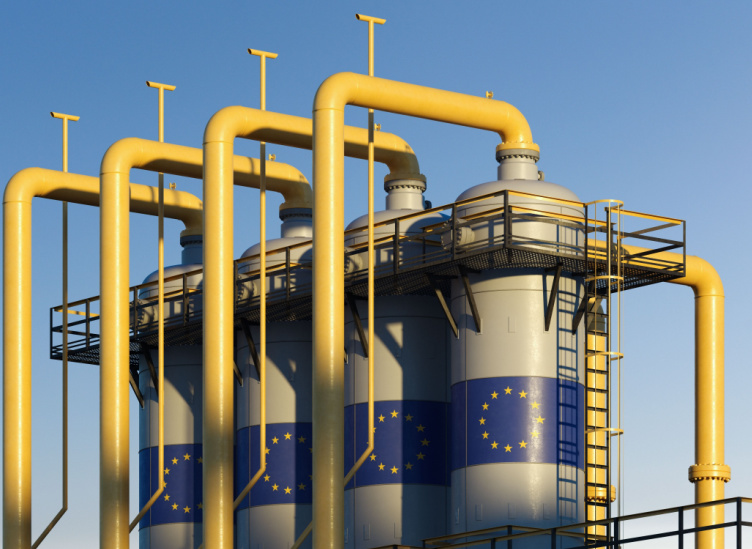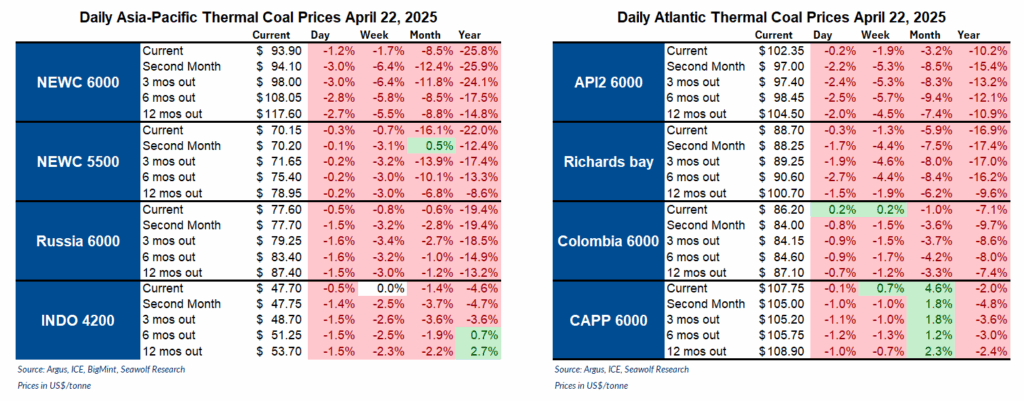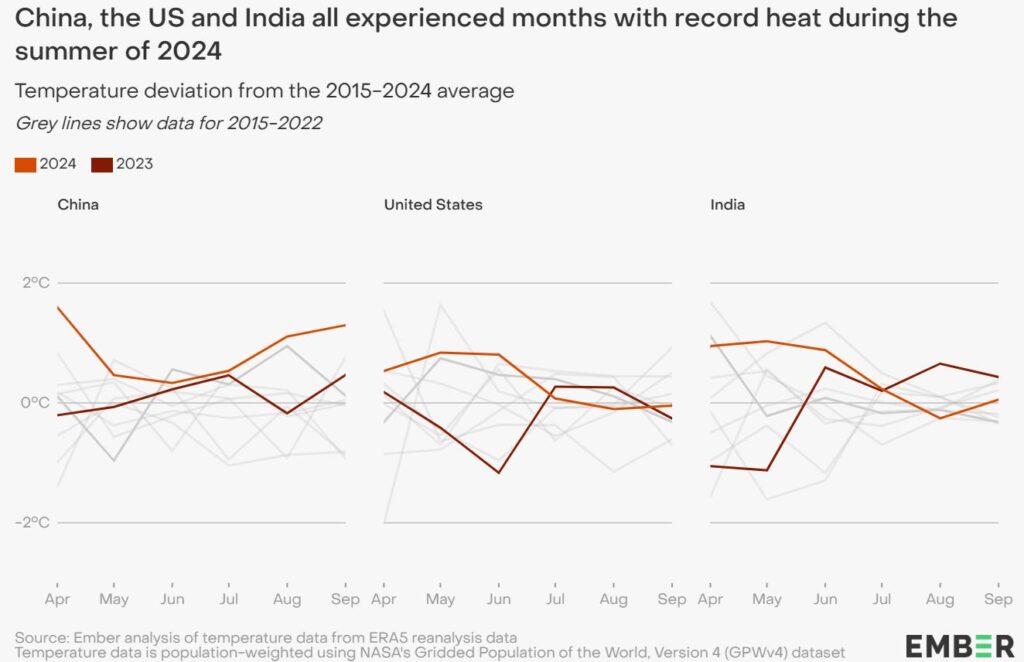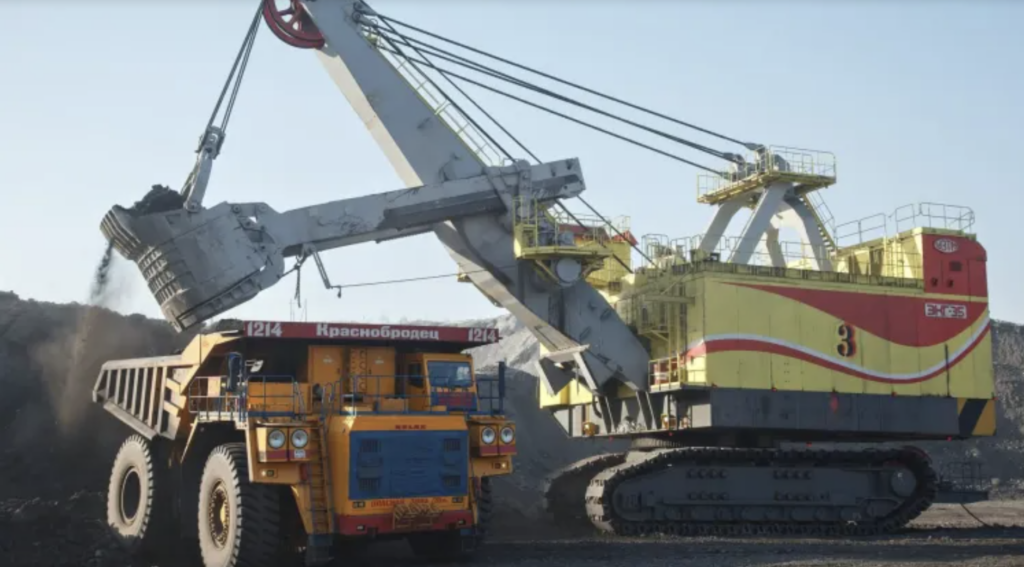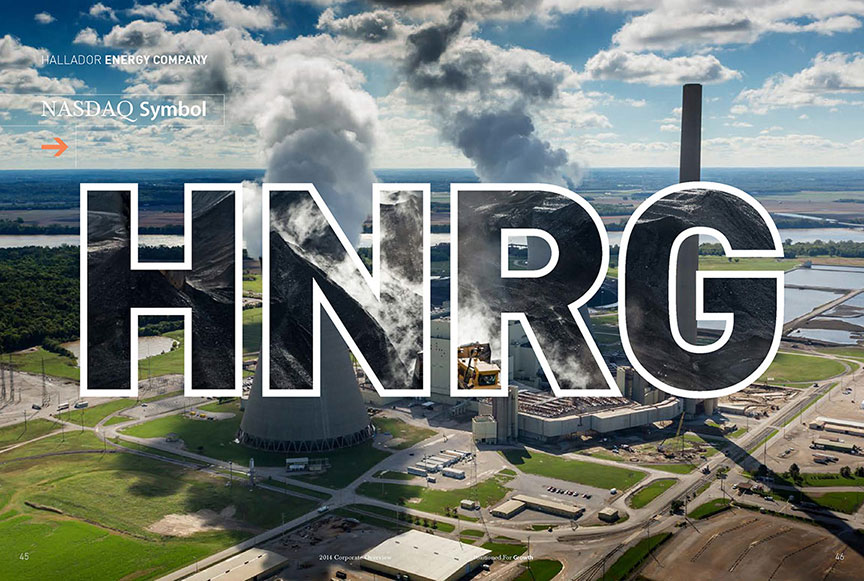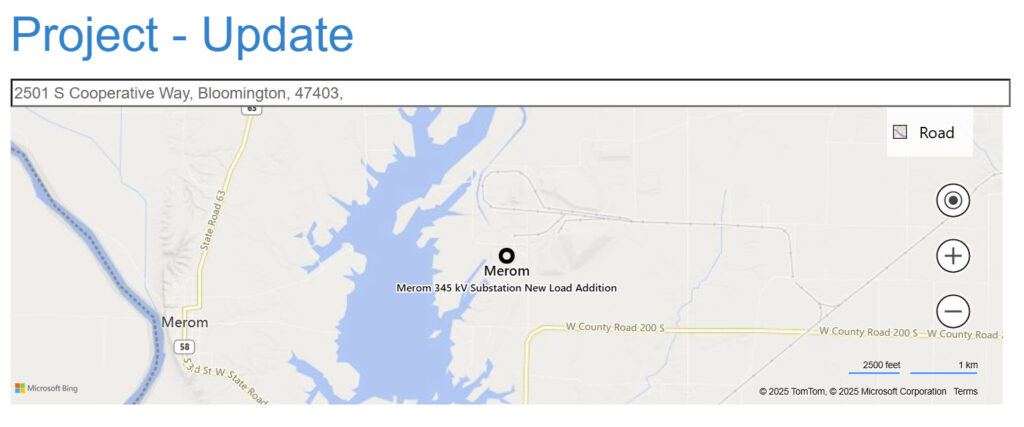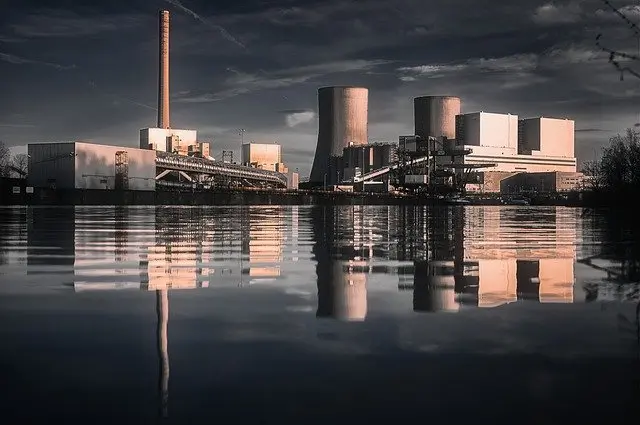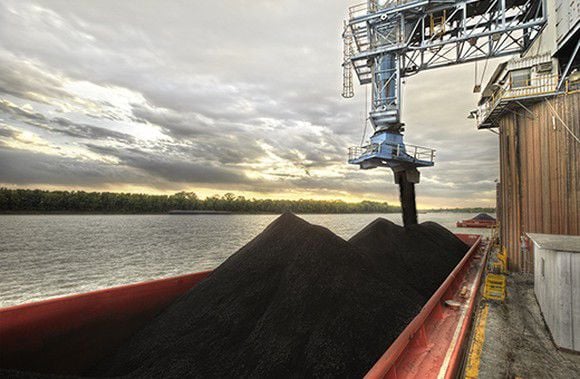European coal and gas prices dropped in tandem on Tuesday amid pressure from high stock levels and sluggish demand.
The front-month API 2 coal contract traded last down USD 0.45 to USD 105/t, on Ice Futures. It earlier reached its lowest since 1 March of USD 104/t.
The equivalent Dutch TTF gas contract was seen last EUR 0.20 lower at EUR 24.73/MWh, on Ice Endex, after earlier touching a two-week low of EUR 24.25/MWh.
Ample supply
Both markets were responding largely to ample supply and a seasonal decline in demand as the winter heating season draws to a close this month, with European gas stocks five percentage points higher on the year, at 61% of capacity.
Coal stocks at Amsterdam, Rotterdam and Antwerp (ARA) were seen this week at a nine-week low of 5.77m tonnes, with port sources citing a slowdown in vessel arrivals due to slack generation demand.
“In the short term, we could head lower,” said Alex Claude, CEO at dry bulk analytics firm DBX, citing a likely near-term floor at around USD 90/t.
At such levels, US and some South African exports would be priced out of Europe, he said. However, he added that the global market could still garner some support from growing demand in leading consumer China, due to domestic production limitations.
Lingering support
Coal was still “holding onto its strength” compared with more bearish gas and carbon movements, said a commodities analyst with an investment firm. He referred in part to short-covering by certain hedge funds, as well as recently imposed US sanctions on key Russian exporter Suek. He noted coal prices were still nearly 20% higher than mid-February’s eight-month low of USD 89/t.
Although there has been an EU-wide ban on Russian coal imports since August 2022 amid the war in Ukraine, the new sanctions could see other buyers – such as Turkey and India – competing more aggressively with Europe for alternative material to avoid incurring secondary sanctions.
This contributed to the front-month API 2 contract surging to a three-month high of USD 115.65/t by last Wednesday, yet the initial fears have since abated.
“There is still some uncertainty about the impact,” said the investment firm analyst, while a coal analyst with a trading firm echoed “that evidence might take some time to emerge”.
Claude said the sanctions had been a “non-event from a fundamental standpoint”, and that the recent spike was due more to the market having been oversold beforehand.
Meanwhile, carbon prices declined in line with the related fuel markets. The benchmark Dec 24 EUA contract was last seen EUR 0.08 lower at EUR 56.13/t, on Ice Endex.
Reporting by: Laurence Walker

